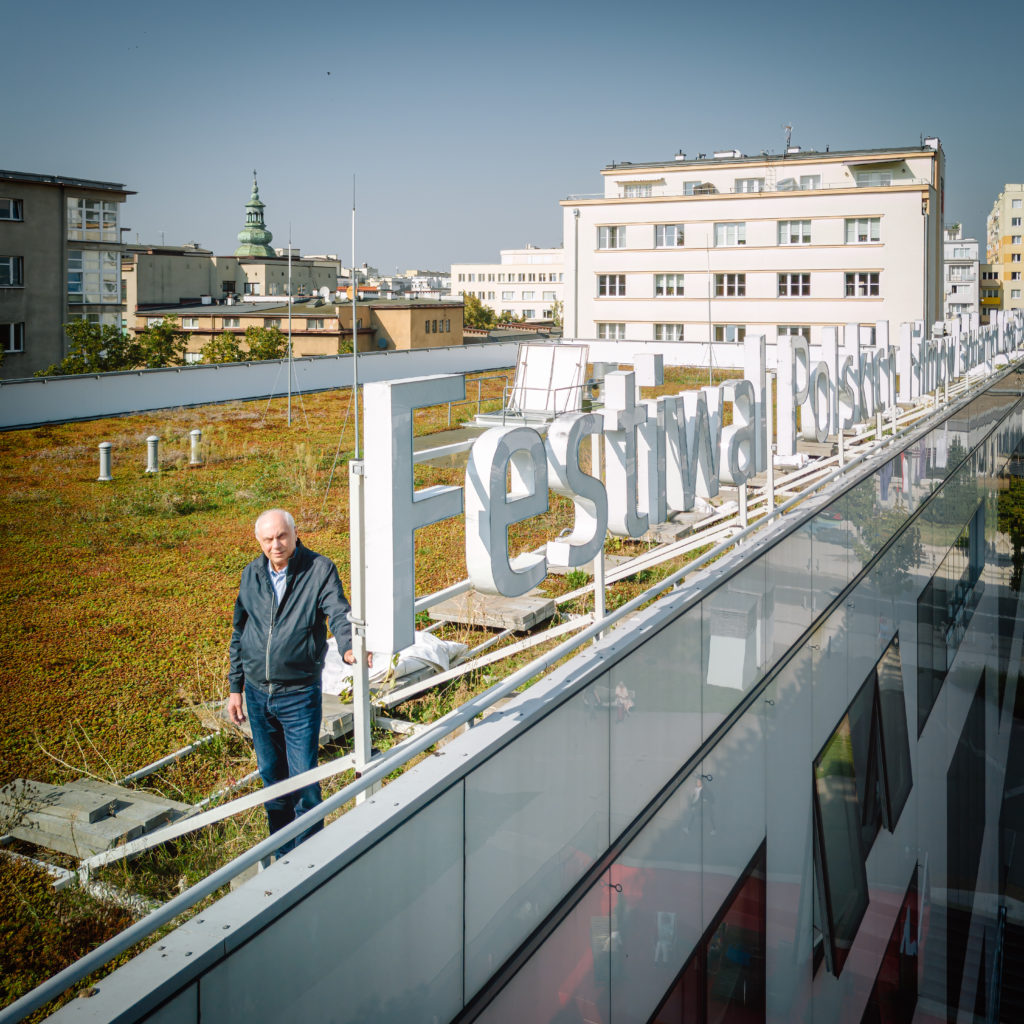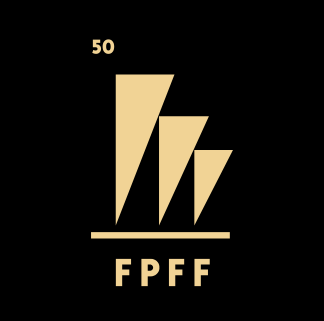From fighting for survival to the Polish Cannes

On the difficult beginnings, the not-so-easy moments, and the spectacular growth – Leszek Kopeć, long-time director of the Gdynia Film Festival, reflects on 25 years of managing this prestigious event in an interview with Mateusz Demski. He also defends the idea of a national festival in the era of cultural globalisation.
Mateusz Demski: How do you remember the years when you took over as festival director? It’s been almost a quarter of a century since then.
Leszek Kopeć: I came to this position during what was probably the toughest period for Polish cinema, which our festival reflects and mirrors. First of all, it was a time when only a few feature films were made each year, so the very justification for such an event was questioned. Secondly, there was an idea to move the event to Warsaw. In the end, as we know, the festival did not move to the capital, and it was the filmmakers’ community that helped with that. We fought hard to keep it here on the coast.
The next step was the new cinematography law and the establishment of the Polish Film Institute. This resulted in the production of more feature films. After two years, we had to start thinking about a selection process. Previously, everything the producers submitted to us was included in the programme.
What were the biggest changes in the programme and attendance over the years?
The statistics speak for themselves. We used to show 12-18 films in the Main Competition. Over the course of a week, we had 4-5 thousand viewers and 500 accredited guests. By comparison, in the record-breaking year of 2019, we had 5,000 accredited individuals, 72,000 on-site attendees, and 100,000 active online participants. After the pandemic, we managed to attract nearly half a million online viewers. We also have around 200 volunteers supporting the organisational team. The festival has expanded almost tenfold over the past quarter-century.
You mentioned that the very existence of such an event has been questioned several times over the years. So why do we need a festival in Gdynia?
There aren’t many national festivals in Europe, as international film festivals tend to fulfil that need. Major cinematographies – German, English, French, Italian, and Spanish – are represented at these. However, foreign guests who come here say that we have our own, not-so-small, version of Cannes, or at least a resemblance of it. The coastal nature of the annual gathering of filmmakers and audiences is something that has become embedded in the cultural fabric of the coast. It’s a tradition and a strong brand associated with the spirit of the place. Gdynia is a symbol of effective, dynamic, and modern action.
Of course, I will defend the concept of the festival. I’ve spent a quarter of a century organising it and have watched it grow alongside the development of Polish cinema. The stationary format, especially in the digital era, where personal meetings take place, holds great, undeniable value. It’s impossible to achieve something comparable in a digital version. I wouldn’t call it a failure, but during the pandemic, it was a very sad event.
Additionally, it’s worth noting that the schedule we propose, by organising the festival each year in September, has significantly influenced the timing of Polish productions. While many films try their luck at the major international festivals first, Gdynia is one of the few places that producers take seriously. The promotional aspect is not to be underestimated. While this doesn’t always translate into box office success, it’s a strong publicity. Art-house cinemas also receive a bonus from the Europa Cinemas network for screening European films (over 50% of their repertoire), with Polish films playing a significant role in this.
Do Polish filmmakers have a say in shaping the festival?
The annual meetings at Gdynia Industry have become a forum, a place to gather for all industry representatives – not just filmmakers but also producers, distributors, and organisers of other festivals. Various issues are discussed, from the financing of Polish films to legal and legislative problems related to royalties, to declining attendance and threats posed by the use of artificial intelligence. The festival also has a large Programme Council, made up of over a hundred members, which has been chaired for the past two years by Jan P. Matuszyński.
Based on the conclusions drawn there, the heads of various ministries – including the Polish Film Institute, the Ministry of Culture and National Heritage, and the Polish Filmmakers Association – make key decisions regarding Polish cinema and the festival itself.
I’m curious to what extent the festival – over the past quarter-century we’re discussing – has been influenced by political pressures. How has the relationship between the organisers and the government looked?
It’s never been entirely possible to avoid this. The Minister of Culture is one of the main organisers of the event, which is somewhat unique. Usually, the ministry funds such events, but in this case, through its representative, it’s directly involved in the organisation. Key decisions made by the Organising Committee involve the participation of the ministry’s representative.
The question is, is this good or bad? There may be concerns about government interference.
This presence is generally perceived positively, but the moment an attempt is made to interfere with the programme, it would be met with opposition from all the other committee members, eleven in total. The collegial and somewhat democratic nature of the committee’s work generally prevents authoritarian decisions that would go against what the film community wants – freedom of thought and the expression of aesthetic and ideological views.
The festival’s format evolves from year to year. A big change this year is the new competition called Perspectives. Is this a return to an idea from years ago – by this I mean the Visions Apart section?
The change primarily stems from the number of films being submitted. For the past few years, 50 films have been submitted to the festival, while the total annual production is over 70. The second competition has been positively received by producers. In the past, when we redirected films from the Main Competition to the Visions Apart section, producers would withdraw them – saying they didn’t want to be in the so-called “pool of rejections.” The same happened with the previous section, Polish Film Panorama. This year, no one withdrew.
Perspectives is a kind of counter offensive to the Main Competition. Just look at the titles selected this year. Bartosz Kowalski’s Night Silence is a chamber film in the horror convention. Ireneusz Grzyb’s The Dog is a borderline science-fiction production, while Challenge of the Bow a completely experimental project by Łukasz Barczyk. We also have films like Marek Kossakowski’s My Side of the River and Kamila Tarabura’s Travel Essentials, which can be called psychological dramas. Meanwhile, Maria Zbąska’s It’s Not My Film is a road movie, and Michał Grzybowski’s Seasons is an interestingly executed acting diploma.
So, the priority in selection is diversity? Or maybe an attempt to please everyone?
In the Main Competition, we have a clear response to what is happening in the world. Four films represent the war genre, which is quite understandable. Damian Kocur’s Under the Volcano, Łukasz Karwowski’s Two Sisters, and Maciej Ślesicki’s People deal with the war in Ukraine. Mary Tamkovich’s Under the Grey Sky addresses the situation of Belarusian journalists, while Agnieszka Holland’s Green Border tackles the crisis on the Polish-Belarusian border. However, each of these films is different – from psychological drama to brutal, almost naturalistic depictions of what is happening on the front lines.
On the other hand, we have films dealing with more distant but contemporary history. WiesławPaluch’s Go Against the Flow is a biographical film about the punk band KSU. XaweryŻuławski’s Kulej. All That Glitters Isn’t Gold is another biography, showing the fascinating figure of a boxer who dominated not only the Polish but also the international sports arena. Another film in this genre is Adrian Panek’s Simona Kossak, which tells the story of the eponymous biologist, granddaughter of the legendary painter, who gained many fans and supporters over the years. In 2003-2004, I used to listen to her radio talks while commuting from Wrzeszcz to Gdynia.
For years, critics have complained about the biographical film genre, which returns almost every year at Gdynia. Similar voices concern the dominance of films about historical themes, mainly focused on the communist era. At the same time, these titles are often well received by the Polish audience. I guess it’s impossible to please everyone, isn’t it?
There will always be those dissatisfied, whether with the selection or because their film didn’t make it into one competition or another. Perspectives allows us to present a broader range of what has happened in Polish cinema over the past year. Of course, there will also be differences in the ratings of these films. In fact, it is only on the basis of comments, reviews and statements after the films’ screenings that we will see what critics and audiences will leave Gdynia with.
This interview appeared in the festival newspaper KLAPS
Photo: Tomek Kamiński


